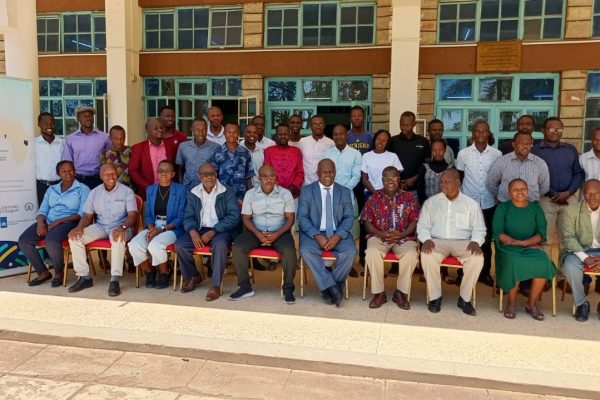~By Leah Aoko, Florence Onyango
On June 27th, 2024, the MicroSave Consulting (MSC) and Africa Leadership Academy (ALA) co-hosted a critical webinar focused on improving access to climate finance for locally led adaptation (LLA) initiatives across Africa. The Africa Research and Impact Network (ARIN) played a prominent role in this discussion, bringing their expertise to the table alongside other leading organizations. The session aimed to deepen stakeholder understanding of LLA, empower policymakers to design effective initiatives, and optimize resource allocation strategies.
Prominent speakers and panelists engaged in the discussion, including Leah Aoko from ARIN, Tracy Kajumba from the Least Developed Countries initiative for Effective Adaptation and Resilience (LIFE-AR), and Anju Sharma, the Global Lead for Locally-Led Adaptation at the Global Center on Adaptation.
The discussions highlighted the significant funding gap for adaptation efforts in developing countries. While developing countries require an estimated USD 212 billion annually in adaptation finance by 2030, only USD 56 billion was allocated globally for adaptation in 2021-2022. This disparity is further amplified by the uneven distribution of global adaptation funding. Africa, the continent most impacted by climate change, received only 20% of global flows in 2021-2025, compared to approximately 45% for East Asia and the Pacific. This emphasizes the urgent need for a more equitable distribution of adaptation finance to ensure regions most vulnerable to climate change receive adequate support.
The webinar showcased successful initiatives that exemplify effective strategies for channeling adaptation finance to local communities. These initiatives included co-learning projects in Mukuru informal settlement by the Global Centre on Adaptation (GCA) and Slum Dwellers International, the Financing Locally Led Climate Action (FLOCCA) co-funded by the World Bank and the Government of Kenya, and the Locally Led Adaptation Metrics for Africa (LAMA) funded by the IDRC. These projects demonstrate the potential for impactful local solutions when communities are empowered to drive their own resilience efforts.
A key distinction was drawn between community participation and community-led adaptation. The webinar emphasized the importance of moving beyond mere participation to community-led adaptation, a concept ARIN strongly advocates for. By empowering communities to lead their own resilience efforts, interventions can be more effectively aligned with specific needs and enhance adaptive capacity. This approach gives communities the agency to develop solutions tailored to their unique challenges.
Digital financing instruments were discussed as a potential means to enhance flexibility in accessing adaptation funding. However, the adoption of these instruments in the global South is hindered by technological barriers. Overcoming these barriers could significantly improve the reach and efficiency of adaptation financing mechanisms, making it easier for local initiatives to secure necessary funds.
The webinar highlighted the importance of ensuring equity and inclusivity in adaptation efforts. To avoid elite capture and promote inclusive adaptation, engaging with local gatekeepers and informal authorities within communities is crucial. Moreover, tailoring adaptation financing to address the specific vulnerabilities of marginalized groups, such as widows, orphans, and persons with disabilities, is essential. This inclusive approach ensures that all community members benefit from adaptation initiatives.
The session concluded with a call to action for increased investment in locally led adaptation strategies that prioritize vulnerable social groups. Research under the LAMA project emphasizes the criticality of aligning adaptation interventions with community-identified needs. This research aims to establish clear metrics for evaluating the effectiveness of adaptation initiatives, guiding future investments and fostering meaningful public-private partnerships in adaptation financing.
©ARIN Press

